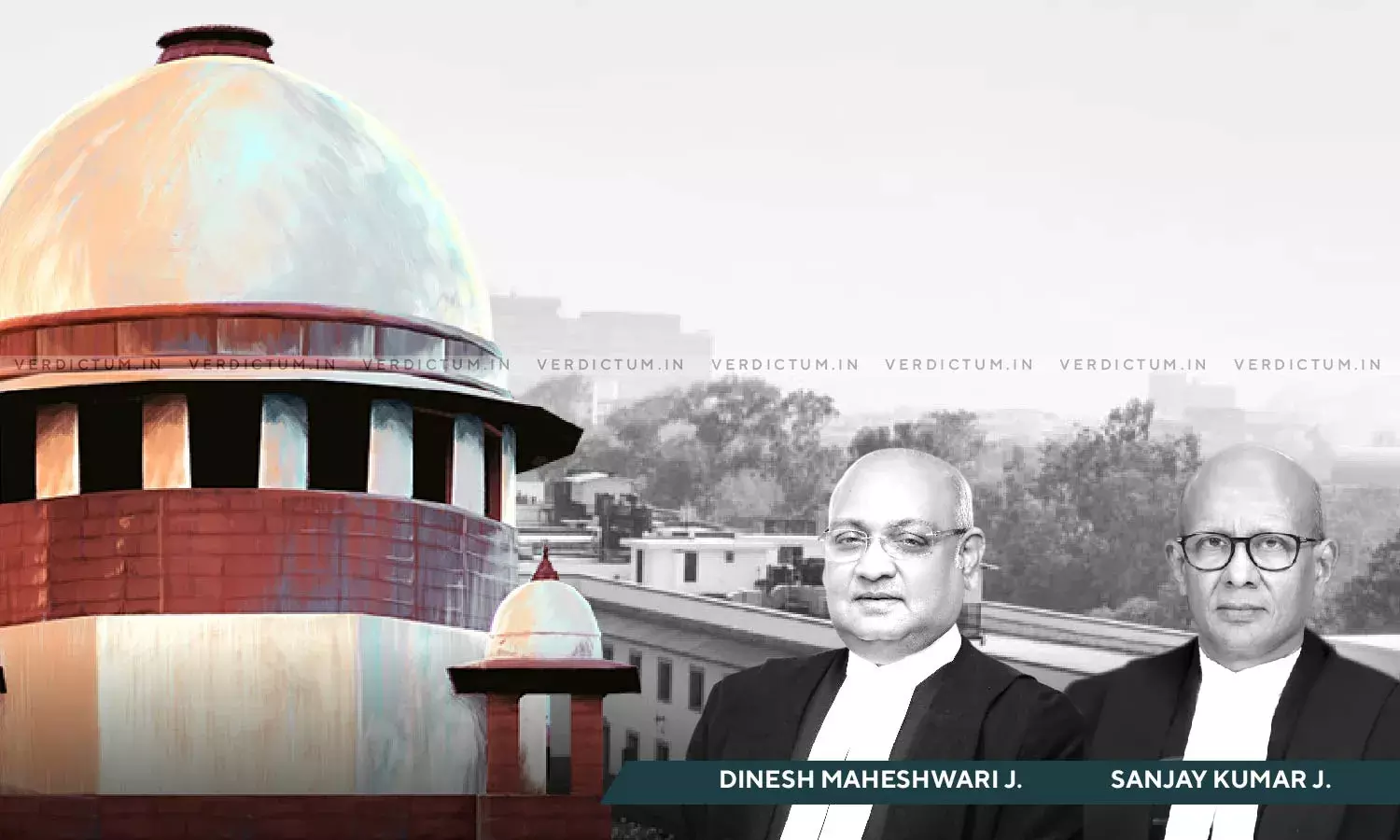Merely Making A Prayer Contrary To Existing Provision In Statute Does Not Carry In Itself A Challenge To Provision: SC

The Supreme Court in an appeal preferred by the State of Orissa has recently held that merely making a prayer contrary to the existing provision in the statute does not carry in itself a challenge to the provision. The Court was dealing with a matter relating to the Orissa Khadi and Village Industries Board Act, 1955.
The two-Judge Bench of Justice Dinesh Maheshwari and Justice Sanjay Kumar observed, “… merely making a prayer contrary to the existing provision in the statute does not carry in itself a challenge to the provision. Secondly, for challenging a particular provision, specific case is required to be made out of either want of statutory powers or of violation of any constitutional mandate. Neither any such ground of challenge had been urged nor could be assumed.”
The Bench said that sympathy or sentiment by itself cannot be a ground for passing an order beyond and contrary to the legal rights.
“… we could only observe that under Article 142 of the Constitution of India, this Court cannot issue directions in violation of the statutory provisions”, the Court also said.
Advocate Shibashish Misra appeared for the appellants while Senior Advocate A.K. Behra and Advocate Filza Moonis appeared for the respondents.
In this case, an appeal was directed against the judgment and order passed by the Division Bench of the Orissa High Court whereby it dismissed the intra-court appeal filed by the State and affirmed the order passed by the Single Judge of the High Court, holding the employees of the Orissa Khadi and Village Industries Board entitled to a pension at par with the Government employees and also directing the State Government to amend the applicable regulations accordingly.
The question before the Supreme Court was whether the Government could not have at all referred to the financial constraints as one of the reasons for not acceding to such a prayer for amendment. The Court in this context asserted, “Even if Orissa Khadi and Village Industries Board has been established under an enactment of the State and for several relevant factors, it could be considered to be an instrumentality of the State, its distinct characteristic of being a Board established with particular aim and objective cannot be ignored altogether. The Board being a body corporate, incorporated by its name, has been established to carry out the purposes of the Act of 1955 and not beyond.”
The Apex Court noted that even while otherwise applying a substantial part of the Rules in the Orissa Service Code mutatis mutandis to the employees of the Board, Regulation 40 itself starts with a clause of exception, making that provision subject to the other provisions of the Regulations.
“… even when the State has established the Board to carry out its obligations in terms of Article 43 of the Constitution of India, it cannot follow as a corollary that the employees of this body corporate have to be treated as State Government employees in all respects. Such a corollary proposition would practically amount to merging of the Board with the State Government; rather making it as one of the Departments of the Government. This, in the face of existing statute, cannot be done”, the Court said.
The Court further observed that even if the development of khadi and cottage industry is a Directive Principle of State Policy, it does not follow as a corollary that if the State establishes a Board or any organisation to carry out the obligations under such DPSP, it cannot make separate arrangements as regards the service conditions of the employees of such a Board or organisation.
“A prayer for amendment of the Regulation cannot be equated with a prayer to declare the same as invalid. … Viewed from any angle, invocation of the principles forbidding hostile discrimination remains baseless and the contentions urged on that basis are required to be rejected”, the Court also noted.
The Court held that whether to amend the Regulations or not, in the scheme of the Act of 1955 as also the Regulations of 1960, is required to be left to the State and for that matter, the number of employees to be affected/benefitted is not of much relevance.
“… nothing would prevent the State Government to carry out the amendment in the form suggested or in any other modified form, if the State Government would be willing to do so. The only question in the present appeal is as to whether a mandamus could have been issued to the State to carry out amendment. As noticed, the answer could only be in the negative”, said the Court.
The Court, therefore, said that a writ of mandamus cannot be issued to the State to carry out amendments as desired by the respondent.
Accordingly, the Court allowed the appeal.
Cause Title- State of Orissa & Anr. v. Orissa Khadi and Village Industries Board Karmachari Sangh & Anr.
Click here to read/download the Judgment


